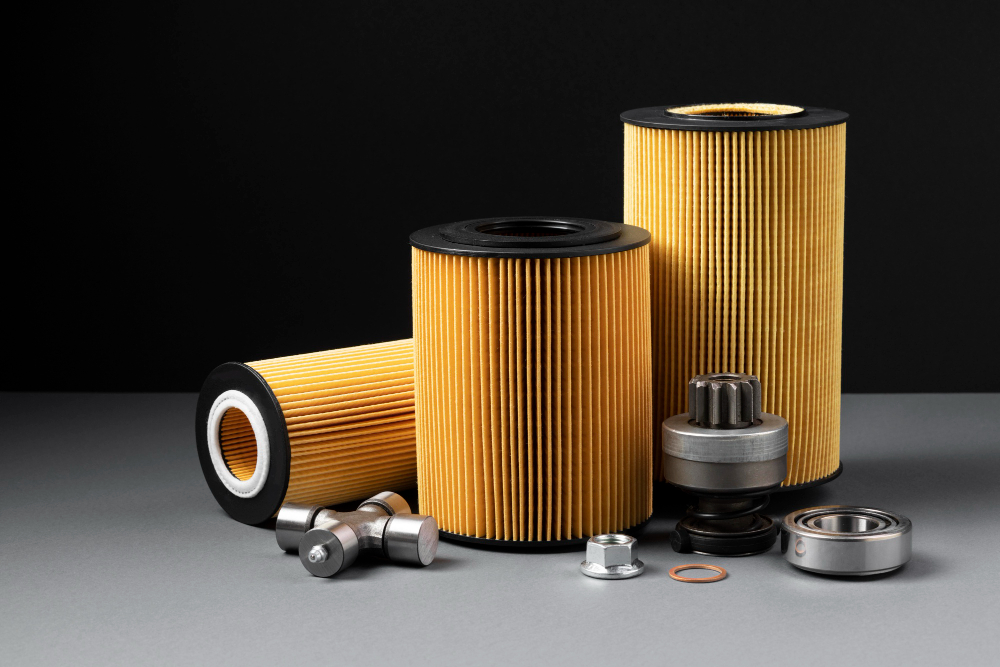Hydraulic systems are crucial in various industrial applications, from heavy machinery to automotive equipment. One of the critical components in these systems is the hydraulic oil filter. This filter plays a vital role in maintaining the cleanliness and efficiency of the hydraulic fluid. In this article, we’ll explore the different types of hydraulic oil filters available, their advantages, disadvantages, and factors to consider when choosing the right filter for your hydraulic system.
Surface Filters
Surface filters, also known as screen filters, are designed to capture contaminants on the surface of the filter medium. They typically consist of a mesh or screen material through which the hydraulic fluid passes. Contaminants such as dirt, debris, and larger particles are trapped on the surface, allowing clean fluid to flow through.
Advantages:
- Easy to clean and maintain.
- Suitable for removing larger particles.
- High flow rates.
Disadvantages:
- Lower filtration efficiency for smaller particles.
- Prone to clogging if not cleaned regularly.
Depth Filters
Depth filters are designed to capture contaminants throughout the thickness of the filter medium. They typically consist of porous materials such as cellulose, paper, or synthetic fibers. As the hydraulic fluid passes through the filter, contaminants are trapped within the depth of the filter medium.
Advantages:
- High filtration efficiency for a wide range of particle sizes.
- Longer service life compared to surface filters.
- Can handle higher levels of contamination.
Disadvantages:
- Higher initial cost compared to surface filters.
- May require specialized equipment for maintenance.
Magnetic Filters
Magnetic filters utilize magnets to attract and capture ferrous contaminants from the hydraulic fluid. These filters are particularly effective at removing metal particles such as iron and steel fines. They are often used in conjunction with other types of filters to enhance filtration efficiency.
Advantages:
- Highly effective at removing ferrous contaminants.
- Can extend the life of hydraulic components.
- Minimal maintenance required.
Disadvantages:
- Limited effectiveness against non-ferrous contaminants.
- May require periodic cleaning to remove trapped particles.
Centrifugal Filters
Centrifugal filters utilize centrifugal force to separate contaminants from the hydraulic fluid. The fluid is directed through a spinning rotor, where contaminants are forced to the outer edge and collected in a separate chamber. Clean fluid is then directed back into the system.
Advantages:
- High filtration efficiency for a wide range of contaminants.
- Can handle high flow rates.
- Self-cleaning mechanism reduces maintenance requirements.
Disadvantages:
- Higher initial cost compared to other filter types.
- Requires sufficient space for installation.
Factors to Consider When Choosing a Hydraulic Oil Filter
When selecting a hydraulic oil filter for your system, several factors should be taken into account to ensure optimal performance and reliability.
Fluid Compatibility: Ensure that the filter material is compatible with the hydraulic fluid used in your system to prevent degradation or contamination.
Filtration Efficiency: Consider the level of filtration required based on the cleanliness requirements of your hydraulic system and the type of contaminants present.
Flow Rate: Choose a filter with an appropriate flow rate capacity to ensure adequate fluid flow without causing pressure drop or system inefficiencies.
Maintenance Requirements: Evaluate the maintenance needs of the filter, including cleaning intervals, replacement frequency, and ease of servicing.
In conclusion, the choice of hydraulic oil filter type is crucial for maintaining the performance and longevity of hydraulic systems. Each type of filter has its advantages and disadvantages, and careful consideration should be given to factors such as filtration efficiency, fluid compatibility, and maintenance requirements. By selecting the right filter for your system’s needs, you can ensure reliable operation and minimize the risk of costly downtime due to hydraulic system failure.






